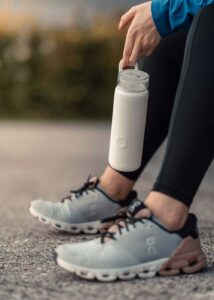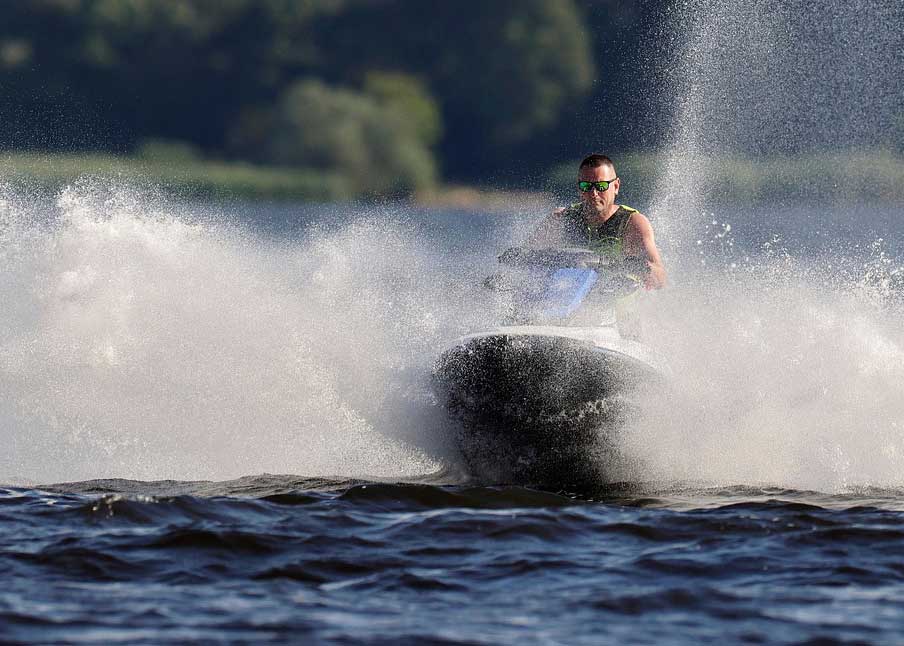Staying Safe in the Florida Sun: Your Essential Guide to Summer Health
Summer in Polk County, Florida, means bright sunshine, longer days, and plenty of opportunities to enjoy the outdoors. Whether you’re heading to a local park, spending time on the water at one of Polk County’s 554 lakes, tending your garden, or simply walking to the store, it’s important to protect yourself from the unique challenges of the Florida summer heat. Sun safety, proper hydration, and good outdoor habits can help you enjoy the season while keeping yourself and your loved ones healthy.
Here’s your comprehensive guide to sun safety, hydration, and smart summer habits.
Why Sun Safety Matters in Florida
Florida is known as the “Sunshine State” for a reason. Our state receives more than 230 days of sunshine per year, with Polk County’s summer temperatures often soaring into the 90s (Fahrenheit). While the vitamin D in sunshine is critical for both our physical and mental well-being, too much sun exposure can be dangerous.
Risks of Excessive Sun Exposure:
- Sunburn: Serious sunburns can increase your risk of skin cancer later in life.
- Skin Cancer: Florida has one of the highest rates of melanoma in the country.
- Premature Aging: Ultraviolet (UV) can accelerate skin aging, causing wrinkles and age spots.
- Eye Damage: UV exposure can increase the risk of cataracts and other eye disorders.
- Heat-Related Illnesses: High temperatures can lead to heat exhaustion and heat stroke, which can be life-threatening if not treated promptly.
Learn about the role of screening for early cancer detection and coverage available through the Polk HealthCare Plan.
Sunscreen: Your First Line of Defense
Why Use Sunscreen?
Sunscreen acts as a shield, protecting your skin from the sun’s harmful UV rays. UV radiation can damage skin cells even on cloudy days or when you’re in the shade.
Choosing the Right Sunscreen:

- SPF 30 or Higher: Choose a broad-spectrum sunscreen with an SPF of at least 30. “Broad-spectrum” means it protects against both UVA and UVB rays.
- Water-Resistant: Choose a water-resistant sunscreen if you are going swimming or will be sweating.
- Reef Safe: If you’re heading to natural water bodies, choose a sunscreen that is safe for aquatic life.
How to Apply Sunscreen:
- Apply generously to all exposed skin 15 to 30 minutes before going outside.
- Don’t forget easy-to-miss spots: ears, back of neck, tops of feet and behind knees.
- Reapply at least every two hours or more often if you’re swimming or sweating.
Staying Hydrated: Beat the Florida Heat
Why Hydration is Vital
Sweating is your body’s natural way to cool off, but it also means you’re losing water and electrolytes quickly in the Florida heat. Dehydration can sneak up on you, especially in humid weather.
Signs of Dehydration:

- Thirst
- Dry mouth or lips
- Headache
- Dizziness or lightheadedness
- Dark yellow urine
- Fatigue
- Muscle cramps
Tips for Staying Hydrated:
- Drink Water Frequently: Don’t wait until you’re thirsty to drink. Aim for at least 8 to 10 cups of water daily – even more if you’re physically active or spend time outdoors.
- Avoid Sugary or Alcoholic Drinks: These can dehydrate you further.
- Eat Hydrating Foods: Fruits like watermelon, orange,s and cucumbers have high water content.
- Carry a Water Bottle: Make it a habit to bring a reusable water bottle wherever you go.
Other Essential Summer Safety Tips
Dress Smart
- Wear light-colored, loose-fitting clothing.
- Choose breathable fabrics such as cotton or linen.
- A wide-brimmed hat offers extra protection for your face, ears and neck.
- Sunglasses with UV protection help shield your eyes from harmful rays.
Seek Shade
- Try to stay in the shade during peak sun hours, usually between 10 a.m. and 4 p.m.
- Use umbrellas, canopies, or seek out trees at parks and beaches.
Be Mindful of Outdoor Activities
- Schedule strenuous activities for early morning or evening when it’s cooler.
- Take regular breaks in the shade or indoors.
Protect Children and Older Adults
- Children’s skin is more sensitive to UV rays.
- Older adults may not feel thirst as readily and are more susceptible to heat-related illnesses.
- Check on neighbors, friends, and family who may be at risk.
Never Leave Anyone in a Parked Car
- Temperatures inside parked cars can rise dangerously fast, even if the car windows are slightly open.
- Never leave children, pets, or vulnerable adults unattended in a vehicle, even for a few minutes.
Know the signs of heat-related illnesses
While you’re out enjoying the Polk County sun, monitor yourself and others for signs of heat-related illness:

- Heat Exhaustion: Heavy sweating, weakness, cold/clammy skin, nausea, or fainting. If you or someone around you starts to exhibit these symptoms, move to a cool place, sip water, and seek medical help if symptoms don’t improve.
- Heat Stroke: High body temperature (103°F+), red/hot/dry skin, rapid pulse, confusion or unconsciousness. If you or someone around you starts to exhibit these symptoms, call 911 immediately-heat stroke is a medical emergency.
Florida summers are beautiful but formidable. By following these sun safety and hydration tips, you can enjoy the outdoors while protecting your health. Remember, even a short time in the sun can put you at risk if you’re not prepared.
Stay safe, stay cool, and have a wonderful Polk County summer!
For more health resources and information, visit Polk Healthcare Plan or get in contact with us.

